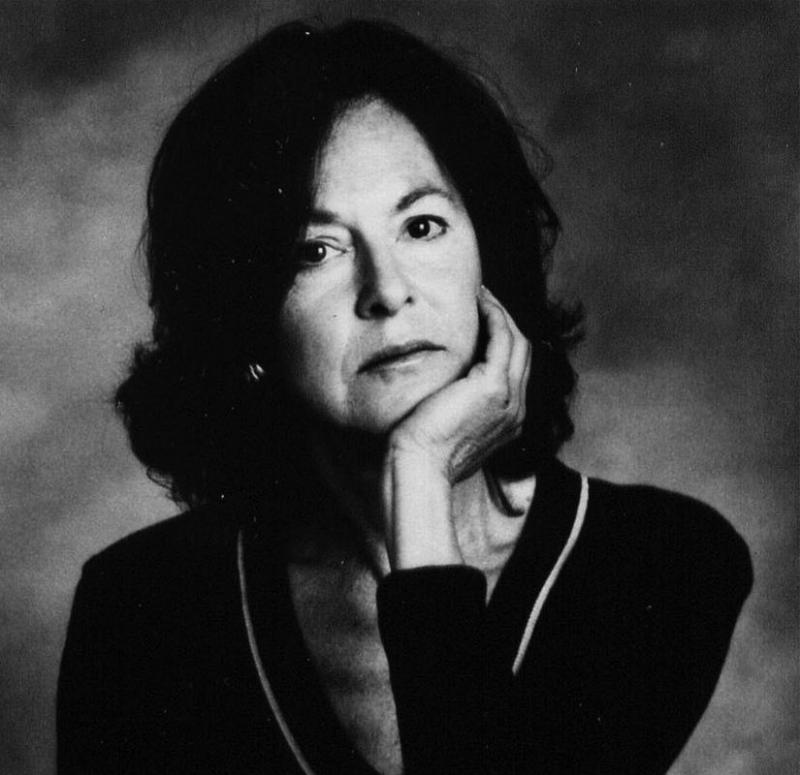American Poet Louise Gluck Awarded Nobel Prize in Literature
By: James Hookway (WSJ)



American poet Louise Glück won the Nobel Prize in Literature on Thursday for what the judges described as “her unmistakable poetic voice that with austere beauty makes individual existence universal.”
With Ms. Glück, the judges selected a laureate suited to the transforming world of the pandemic era. One of the 77-year-old poet’s significant topics is “radical change,” they wrote, “where the leap forward is made from a deep sense of loss.”
The disrupted lives and lockdowns wrought by Covid-19 have led to rising levels of stress, isolation and personal strife. The committee praised the poet’s “almost brutally straightforward images of painful family relations,” and noted that her sometimes grim subjects were leavened by “a voice full of humor and biting wit.” Renewal is another of Ms. Glück’s motifs, offering hope amid the sometimes bewildering and wounding tangle of human relations.
Born in New York City, Ms. Glück made her debut in 1968 with “Firstborn” and soon established herself as one of the U.S.’s most prominent contemporary poets. She has received several awards already, including the Pulitzer Prize in 1993 and the National Book Award in 2014. From 2003 to 2004, she was the U.S. Poet Laureate. She is currently a professor of English at Yale University, New Haven, Conn.
Throughout her career Ms. Glück has explored themes of trauma and loss as well as healing and rebirth, often in stripped down, unadorned language. Literary critics have said that in doing so she managed to transform the everyday into a broader and poignant representation of loneliness and pain while at the same time offering promise.
Some scholars consider much of her work confessional, based on or inspired by events in her own life, and unsparingly direct. A sister died before she was born, which appeared to influence much of her writing. “Her death was not my experience, but her absence was,” Ms. Glück once wrote in an essay. “Her death let me be born.”
Ms. Glück found a larger audience in both the U.S. and farther afield with collections including “The Triumph of Achilles,” from 1985, and 1990s “Ararat.” Anders Olsson, chairman of the Nobel Committee, spoke of these works’ deceptively natural tone.
“It is candid and uncompromising, with no trace of poetic ornament,” he said.
The decision to award the Nobel Prize for Literature to Ms. Glück may help the Swedish Academy that judges the award move on from some of the scandals that have plagued it in recent years.
The panel underwent a sweeping revamp in 2018 after a number of sexual assaults were exposed involving Jean-Claude Arnault, the husband of a former member of the academy and a prominent figure in cultural circles in Sweden. In late 2018, Mr. Arnault was convicted of two rapes going back to 2011. Mr. Arnault’s wife, poet Katarina Frostenson, sat on the academy’s judging panel and it later transpired that the academy provided funding for her husband’s cultural center. The funding quickly stopped after the abuse allegations came to light, but three panel members quit following an investigation that found Ms. Frostenson had also improperly benefited from the academy’s financial support.
Several other members subsequently left the academy, forcing it to suspend judging for the award for the first time since World War II.
In 2019, the academy came under further scrutiny for awarding that year’s prize to Austrian author Peter Handke, who had drawn widespread criticism for his support for former Serbian leader Slobodan Milosevic, who died in custody in 2006 before an international tribunal had concluded his trial for perpetrating crimes against humanity.
British author Salman Rushdie had described Mr. Handke as an apologist for the Milosevic regime’s genocidal policies. Mr. Handke delivered a speech declaring his support for Milosevic at his funeral.
In addition to a Nobel medal, Ms. Glück will receive a cash prize of over $1 million. Swedish industrialist Alfred Nobel, the inventor of dynamite, established the prize in his will, along with prizes for chemistry, physics, physiology or medicine, and peace. An economics prize was later established in his name.
—Bryony Watson contributed to this article








